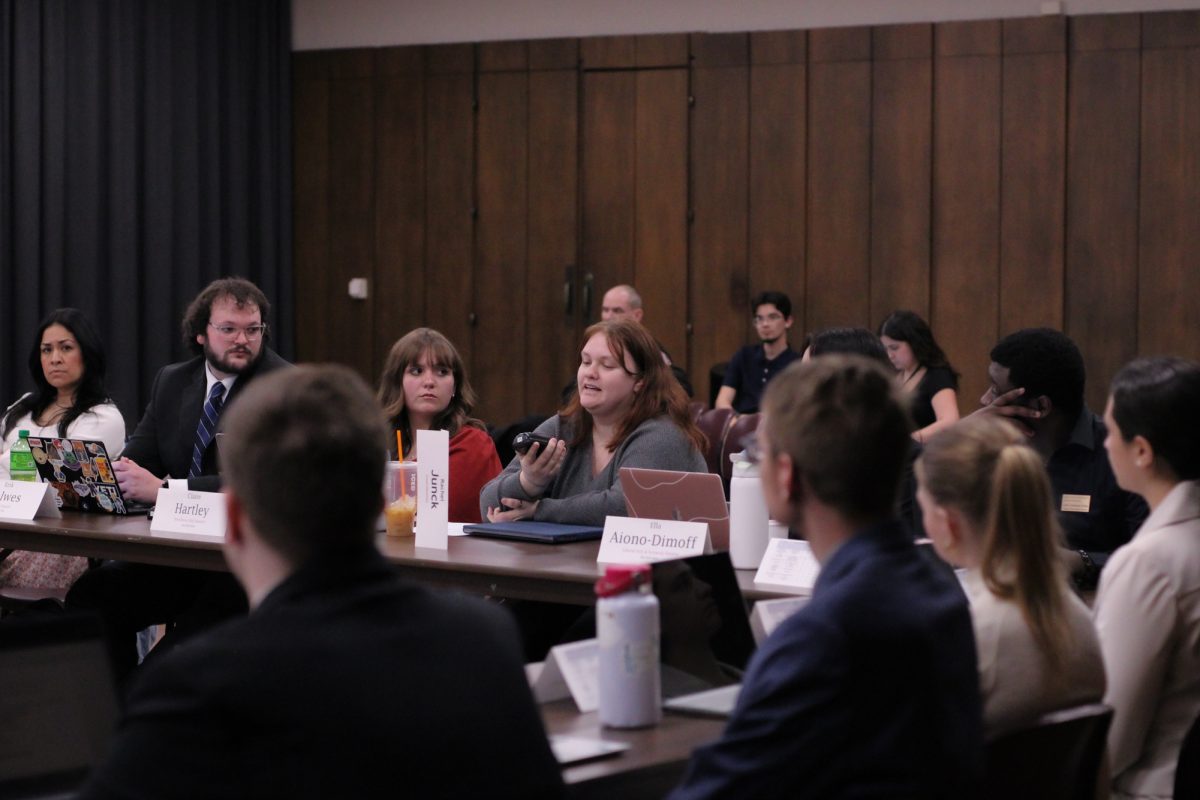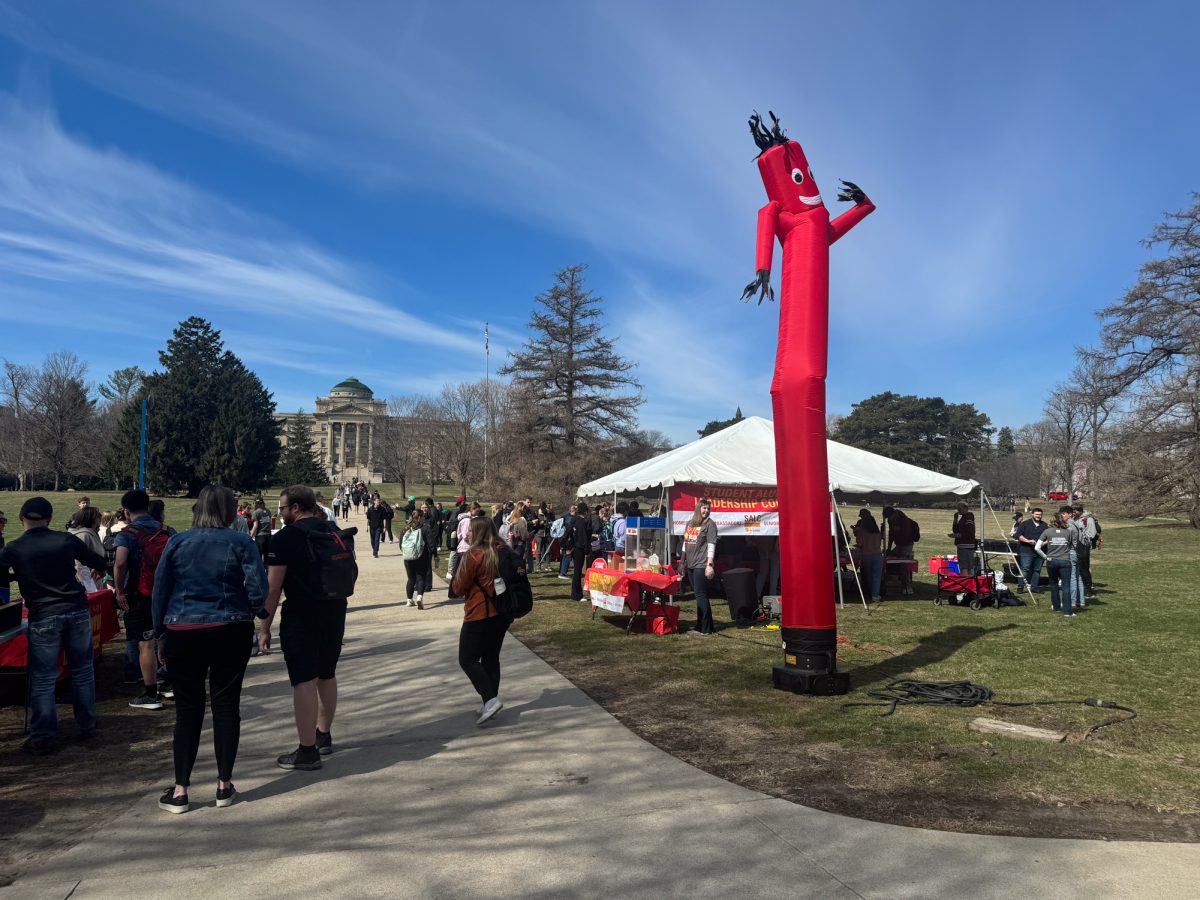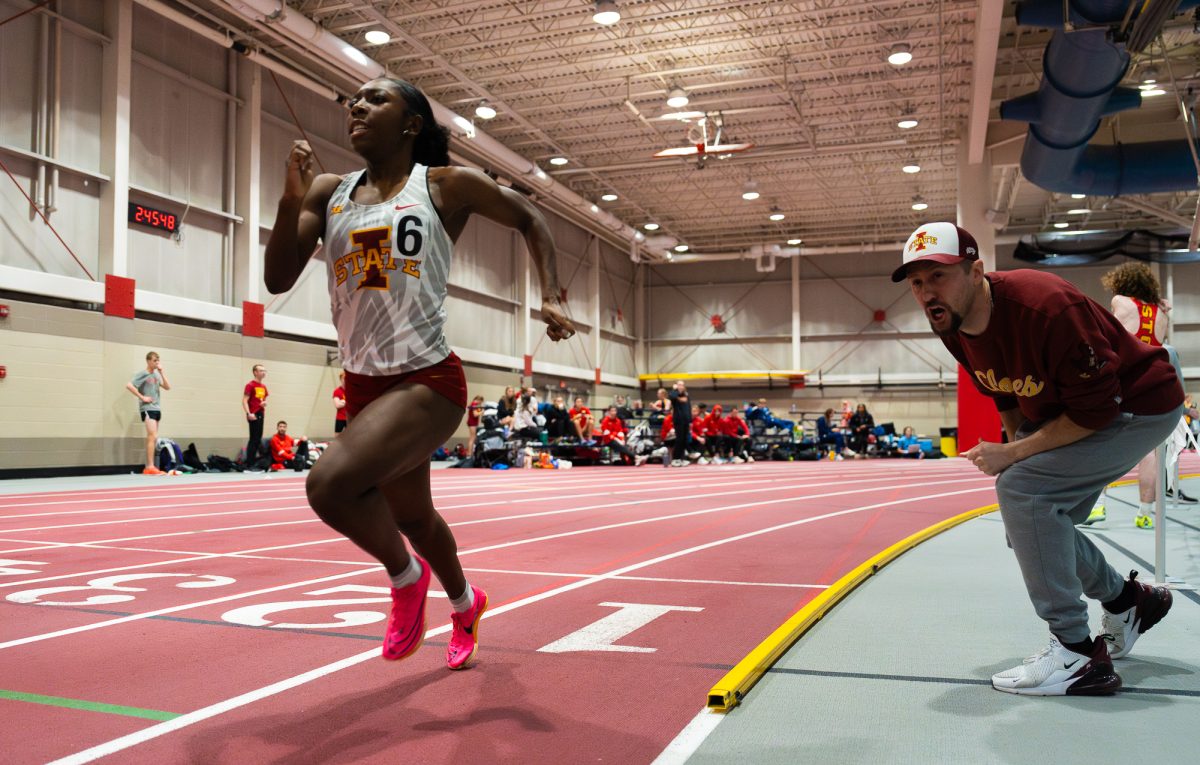Regents, student leaders continue to debate tuition hike
February 3, 2011
The presidents of Iowa’s three Regents universities spoke in support of a five percent raise in tuition for fiscal year 2012 at Thursday’s Board of Regents meeting in Iowa City. Student leaders’ opinions seemed to vary.
“I approve a modest additional total 4.7 percent increase for the University of Iowa,” said University of Iowa President Sally Mason. “We’ve maintained and continue to grow quality for our students.”
She mentioned that the University of Iowa is still dealing with flood recovery from 2008, on which the university is still spending nearly $1 million per year.
“We are not in any way intending on making up for the budget cuts of the past few years,” Mason said.
Michael Gartner, a member of the Board of Regents, said that saying it’s a five percent hike is misleading.
“That’s just the beginning of it… We’re not talking about a five percent increase at all for some people. It ranges as high as 40 percent… I’m not pointing out if it’s good or bad, but just so we ponder this. We’re not talking about a five odd percent increase,” Gartner said.
ISU President Gregory Geoffroy spoke of his concerns with declining faculty and larger enrollment rates.
“Iowa State is maxed out in use of large classroom space we have,” Geoffroy said. “It puts a limit on large classes.”
He said this year Iowa State had its largest enrollments in a number of departments.
Geoffroy said the numbers for next year are running substantially higher than last year, using indicators such as the number of students who have signed residence hall contracts.
He said that financial aid is very important to students, and the university set aside about 22 percent, or $50 million, for financial aid.
Geoffroy said 80.3 percent of undergraduates received financial aid.
He mentioned that student debt is a big problem for Iowa State.
“It’s gone down a little bit even though tuition rates have gone up … as we work to increase scholarships and decrease loans,” Geoffroy said.
Geoffroy said last year Iowa State had a complete pay freeze for faculty and staff.
“Last year, we had mandatory furloughs and reduced retirement contributions last year by 20 percent,” Geoffroy said, adding that over the past five years, staff in Facilities Planning and Management was reduced by 50 percent, and there has been a five percent reduction in faculty and staff across the university since 2008.
University of Northern Iowa President Benjamin Allen said UNI is focusing on shortening the time for students to achieve degrees.
“We are trying to help the state as much as we can in pre-k through 12. We have a rich history in that we have a large teacher education program,” Allen said.
He said UNI is also looking at reducing administrative costs by combining some of the college and department administrative positions on campus.
Regents member Ruth Harkin said she remembers a time when the budget wasn’t even a topic of discussion for the Regents.
“We’re getting dwindling resources from the state … If you assume that dreary picture, what do our institutions look like? At what point do you have to start changing the structure of how we do business? What will it look like if we are continuing to get smaller amounts from the legislature?” Harkin asked.
“What keeps me awake is not only that question, but more so the competition we have … including community colleges and for profits … UNI and others are trying to figure out where do we sit in that market place for higher education,” Allen said.
Mason mentioned some of the same concerns.
“I hate to see us lose the flexibility and the creativity that has been hallmark. It may be part of what we lose as we sort this stuff out,” Mason said.
Representatives from the Iowa Graduate Professional Student Society and the University of Northern Iowa Student Body Government approved the tuition hike, saying they understood budget cuts from the state have been hard.
UNI’s student body president, Joel Anderson, said he doesn’t approve of how Iowa is becoming a brain-drain state, and said, “Iowans are not caring for our institutions anymore.”
He said, “We need to show Iowans our universities are economic advancements, not money pits.”
Anderson asked the Regents to consider mandating a financial literacy program at all three universities.
Iowa’s student body president, John Rigby, along with ISU student body president Luke Roling, do not approve of the tuition hike.
“I cannot yet in good conscience give my support to an above-HEPI tuition increase leading to an overall tuition and fee increase of seven percent [to ISU],” Roling said.
Roling said during his three years on GSB, addressing student debt has been a priority for students and administration alike.
Roling said GSB has been working to decrease student debt through actions such as creating a new online financial literacy course for students.
“However, these efforts cannot do much more than stem the bleeding if the cost of education becomes more and more,” Roling said.
Roling quoted Iowa State’s vision statement in its most recent strategic plan.
“Iowa State University will lead the world in advancing the land-grant ideals of putting science, technology and human creativity to work.”
He said among the ideals established by the Morrill Act, higher education should be open and accessible to all.
Increases of tuition and fees are scheduled to be voted on at the Regents meeting in March.
The Regents approved two capital item requests.
Animal Resource Laboratories in the College of Veterinary Medicine was funded $4.4 million through federal resources to upgrade its heating, ventilation and air conditioning.
“It’s a 30-year-old facility that needs to be brought up to standards,” Warren Madden, vice president of Business and Finance said.
The second project allows $3.6 million to be put toward upgrading fire suppression, energy conservation and emergency exits in Willow Hall.
The construction of the transportation hub was also approved.
The hub will feature bicycle rentals and storage, a locker room and showers, as well as provide a new hub for CyRide.
The project will begin this spring.






